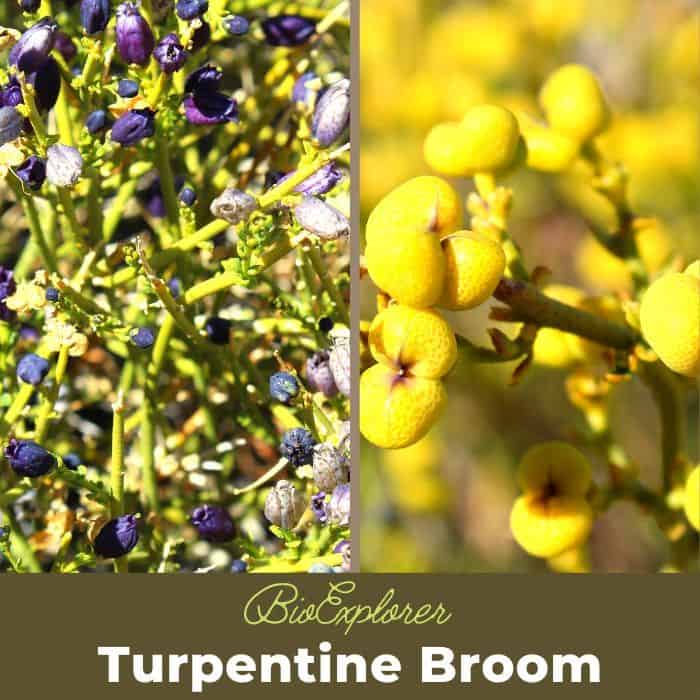
| Plantae | Sapindales | Rutaceae | Thamnosma | Thamnosma montana |
- Plant Type: Slow-growing, woody, perennial shrub.
- Common Names: Turpentine Broom, Mojave Desert-rue, Cordoncillo.
- Color: Purple
- Flowering Seasons/Months: Early spring (March and April).
- Deserts with Turpentine Broom: Deserts of the southwestern United States and northern Mexico, Mojave, and Sonoran.
Turpentine Broom Flower Characteristics
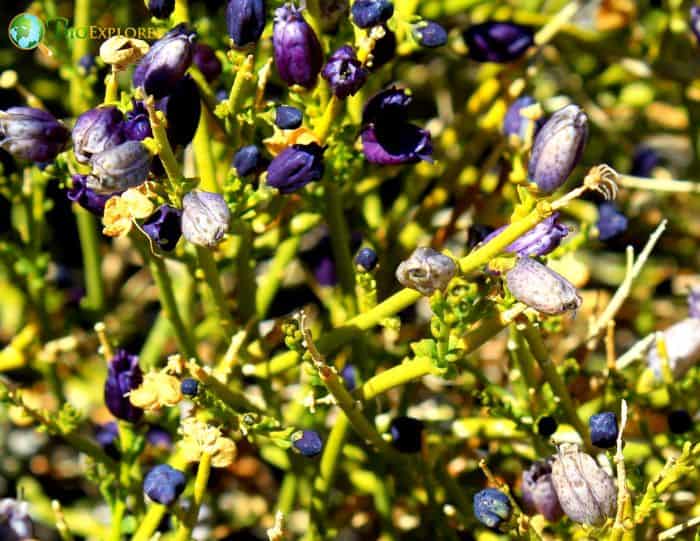
Turpentine Broom is a shrub of the family Rutaceae. This species is native to the southwestern United States and northern Mexico deserts.
- It is an upright plant that can grow to 2 feet. The stems of the Turpentine Broom are with resin glands.
- The Turpentine Broom is often bare, without leaves. They are small and wither quickly.
- The leaves of the Turpentine Broom are light-green and deciduous. These leaves appear with the flowers, but the leaves fall when the soil dries up.
- The flowers of the Turpentine Broom are small in the intervals along the plant’s stem.
- The petals have visible resin glands. The corollaWhat is corolla?A collective term referring to the petals of a flower. of the Turpentine Broom is funnelform or urceolate.
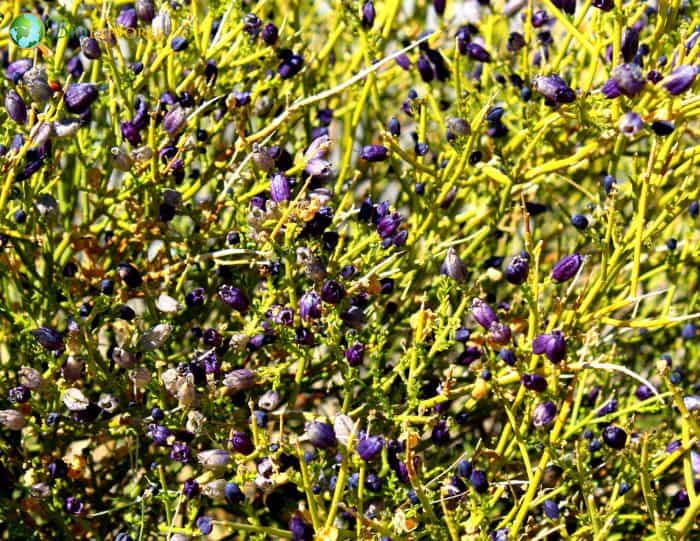
Turpentine Broom Facts
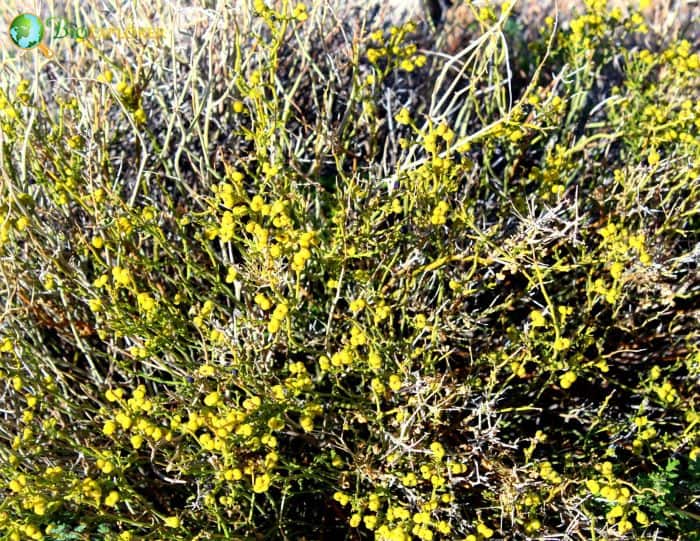
- Thamnosma montana is called the Turpentine Broom[1] because the stem quickly losses its leaves, making it look like a broom.
- The Latin “montana” denotes mountains or from the mountains.
- Many Native American[2] groups used Thamnosma Montanaas medicine, pest control, or a ceremonial drug.
- When rubbed, the resin glands on Thamnosma montana flowers produce a strong “turpentine” aroma. Hence the name.
- The caterpillars of the black swallowtail[3] (Papilio polyxenes coloro) eat only the turpentine broom. The black swallowtail butterfly can distinguish the turpentine broom from other plants by tapping the stems and the leaves with their feet.
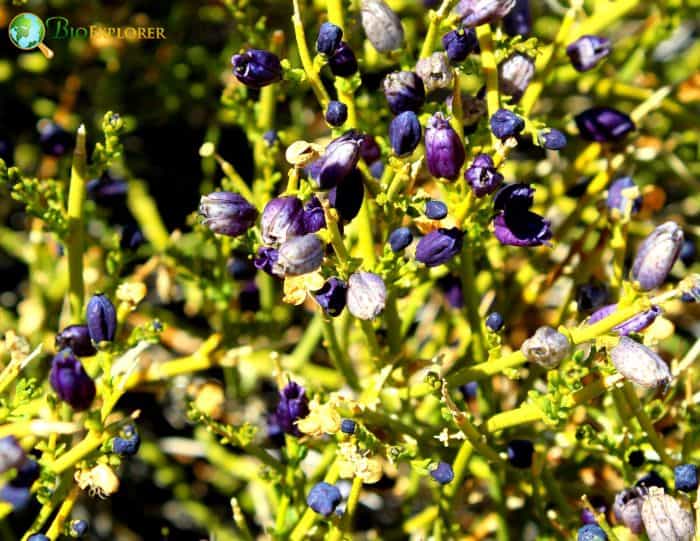
Suggested Reading: Types of Flowers and Their Names
Cite This Page
APA7MLA8Chicago
BioExplorer.net. (2025, December 14). Turpentine Broom. Bio Explorer. https://www.bioexplorer.net/plants/flowers/turpentine-broom/.
BioExplorer.net. "Turpentine Broom" Bio Explorer, 14 December 2025, https://www.bioexplorer.net/plants/flowers/turpentine-broom/.
BioExplorer.net. "Turpentine Broom" Bio Explorer, December 14 2025. https://www.bioexplorer.net/plants/flowers/turpentine-broom/.











